On April 4, 1968, Rev. Dr. Martin Luther King Jr. was assassinated at the Lorraine Motel in Memphis, Tennessee. King went to Memphis to lend support to African-American striking sanitation workers and combat racism and economic exploitation. These along with militarism comprised what he called the “triplet of evil,” responsible for human oppression and hindering the brotherhood of man.
Memphis’ sanitation workers were paid just $1 an hour and denied humane working conditions. In February 1968, two sanitation workers, Echol Cole and Robert Walker, were crushed by their garbage truck's trash compactor when the men entered the back of the truck to escape a rainstorm. Segregation laws prevented the men from sheltering inside a nearby building.
As discussed in the documentary King in the Wilderness (2018), King journeyed to Memphis against the advice of his advisors and despite death threats. What many fail to comprehend is the constant threat of death King lived under and refused to be bowed by. King sought to live each day prepared for it to be his last. This was made poetically clear in his final speech, “I’ve Been to the Mountaintop,” delivered the day before his assassination.
King hadn’t intended to give the Mountaintop speech on April 3, 1968. But when he saw the crowds gathered to hear him speak, he took to the lectern, delivering a speech that was one part strategy session, one part call to conscience, and one part a death-defying eulogy for himself. He urged supporters to join him in a march planned for the following week—a march he would not live to see. And he called them to confront the inherent risks of taking action by explaining why there was no other time period he would rather live in than the tumultuous middle of the 20th century.
King also imagined standing at the “beginning of time” and answering the Almighty’s question of what age he would like to live in. “If you allow me to live just a few years in the second half of the 20th century,” he replied, “I will be happy.”
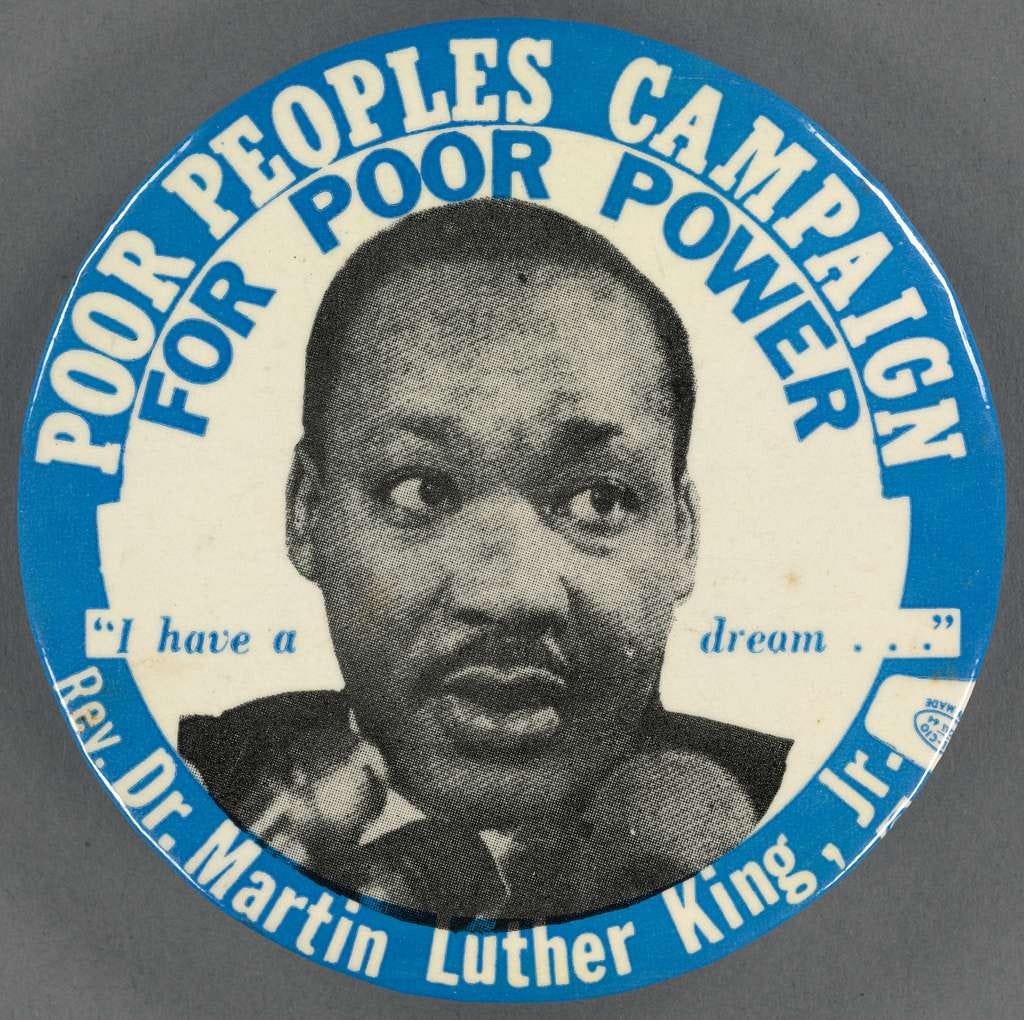
King admitted that this was a “strange statement” given how “messed up” the world is and how “sick” our nation is. But with keen dialectical awareness, King observed that it is often in darkness that the light of truth radiantly penetrates the human heart.
“But I know, somehow, that only when it is dark enough can you see the stars. And I see God working in this period of the twentieth century in a way that men, in some strange way, are responding.
“Something is happening in our world. The masses of people are rising up. And wherever they are assembled today, whether they are in Johannesburg, South Africa; Nairobi, Kenya; Accra, Ghana; New York City; Atlanta, Georgia; Jackson, Mississippi; or Memphis, Tennessee—the cry is always the same: ‘We want to be free.’”
King added that he wished to live in his present age because it was “now” that humanity could no longer simply talk about “war and peace” but had to make the existential choice in favor of “nonviolence” or resign to “nonexistence.”
In his Mountaintop speech, King also chided self-serving religious leaders who diverted their spiritual energies to preparation for the afterlife at the expense of bringing divinely inspired justice to the here-and-now.
“It's all right to talk about ‘long white robes over yonder,’ in all of its symbolism. But ultimately people want some suits and dresses and shoes to wear down here! It's all right to talk about 'streets flowing with milk and honey,’ but God has commanded us to be concerned about the slums down here, and his children who can't eat three square meals a day. It's all right to talk about the new Jerusalem, but one day, God's preacher must talk about the new New York, the new Atlanta, the new Philadelphia, the new Los Angeles, the new Memphis Tennessee.”
Bringing justice down to earth, King went on to explain, means coming together in coordinated action to combat injustice. In Memphis it meant bringing poor people together to engage in “economic withdrawal,” to boycott companies refusing to adopt fair, non-discriminatory hiring practices. Among the companies King encouraged the poor of Memphis to boycott were Coca-Cola, Sealtest milk, Hart's bread and Wonder Bread.
The Trump administration deported hundreds to a Salvadorian prison based on crown tattoos (4 pts) and urban street wear (like Air Jordans kicks) (4 pts). 8 points = shackled on a plane to El Salvador's abusive CECOT facility. Read about it and take action below.
At the end of his speech, King reflected on nearly being killed in an attempted assassination on September 20, 1958. King was in Harlem participating in a book signing event for his first -book, Stride Toward Freedom: The Montgomery Story, when a woman later diagnosed with paranoid schizophrenia stabbed him with a letter opener. X-rays showed that the “tip of the blade” stopped just short of King’s aorta.
Join the humanistic revolt—where the only “weapons” are truth, dialogue, and democratic action.
Rev. King’s legacy lives on as a model of a strategic change agent grounded in spiritual-ethical principles and fortified by courageous character. King asked his followers to adopt a “dangerous unselfishness” that would ensure their success in combating injustice. The New York Times published an article pointing out that King would have died had he simply sneezed. Four days after being operated on, King opened some of the letters he received. The letter that stood out most to him was from a white ninth-grader. She wrote she had heard of the attack and his suffering. “And I'm simply writing you to say that I'm so happy that you didn't sneeze.”
King said he was also glad he didn’t sneeze. For in not sneezing he had been able to witness the onward march of justice from 1961 to the very campaign he was then participating in Memphis. “Now, it doesn't matter, now,” King declared, with gratitude for the life he had so far lived. “It really doesn't matter what happens now.”
King said that he shared the universal wish to “live a long life.” Longevity, he admitted, is a cherished human value. But it is not the most precious of human values.
“I just want to do God's will. And He's allowed me to go up to the mountain. And I've looked over. And I've seen the Promised Land. I may not get there with you. But I want you to know tonight, that we, as a people, will get to the promised land! And so I'm happy, tonight. I'm not worried about anything. I'm not fearing any man! Mine eyes have seen the glory of the coming of the Lord!”
With these final words, King offers us all a model we might live by. This is not a model of a person who dispenses with time and life with flippant disregard. He did not treat life with indifference or carelessness. Rather, he courageously confronted the prospects of death, bolstered by the ecstasy of self-actualization and exemplification of one’s most cherished values—truth, justice, and love.
Want to help Humanities in Revolt grow? Leave a tip to spread the humanistic revolution far and wide!
The promised land is not a distant dream but a way of being in the present that honors these humanistic values. We experience hell or damnation when we succumb to cowardice and sacrifice life-affirming values in the hope power might give us more time. What we forget—what King knew—is that “longevity” loses its luster when that purchased at the expense of truth, justice, and love.
On this anniversary, let us not speak of a life cut short, but of a life lived with courage and clarity of purpose—a life that uniquely lives on. King’s example is a model for confronting bleak times with unyielding faith in human solidarity and steadfast opposition to human oppression in its many forms.
If you made it this far, you’re part of the humanistic revolt. Chose your next move.
1️⃣ Tap ❤️ to amplify this piece’s reach (algorithms are watching)
2️⃣ Comment – Make your voice heard
3️⃣ Share – with someone who needs these ideas
4️⃣ Subscribe (free) – join the revolt for justice and love of life
5️⃣ Upgrade to paid subscription or leave a tip – Sustain uncompromised truth-telling

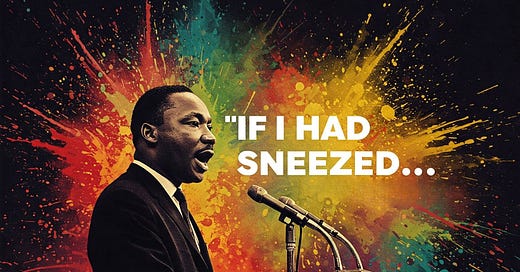


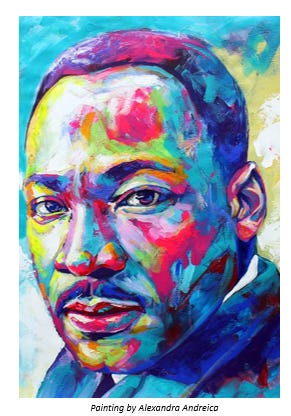

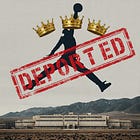


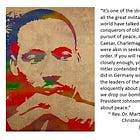
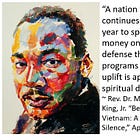

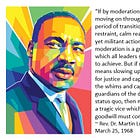
Dr. King’s extraordinary bravery transcends anything I could ever begin to imagine. In his relatively short life, he achieved remarkable milestones that not only reshaped the landscape of civil rights but also inspired countless individuals to stand up for justice and equality. It’s almost unfathomable to consider the monumental impact he could have had on society had he been granted more years to continue his vital work. The sheer volume of challenges he faced would indeed have been exhausting, yet he met each trial with unwavering resolve and a profound commitment to his cause.
Through Dr. King's legacy, we are reminded that true courage lies not only in dreaming of a better world, but also in tirelessly working toward its realization with integrity and passion.
I got this far and agree with the spirit of all you said, especially (excerpted with my take):
1. Rev. King’s legacy lives on as a model of a strategic change agent grounded in spiritual-ethical principles and fortified by courageous character - like Jesus, Gandhi - and not so many more in history.
2. The promised land is not a distant dream but a way of being in the present that honors these humanistic values - but who are those that even aim at being this way, leave alone being it?
3. King’s example is a model for confronting bleak times with unyielding faith in human solidarity and steadfast opposition to human oppression in its many forms - but of what use is a model if it, obviusly does not work? He and his predecessorss (see above) all could not realize their dream and there is no reason to believe that it can be realized.
This is the thing even they did not realize (and no great philosopher either) - and we can do justice to them only by realizing what they missed - and complete that model to a feasible one. From this foundational conviction I can oly give some pointers:
How is their dream justified? By spiritual-ethical principles and God's will - but there is no God and there are no absolute spiritual-ethical principles - it's "simply" the best humans can imagine - and imagine to be - and actually were at one time in the distant past - before their spirit started it's long and irreversible downfall.
Whatever, but how could their dream be realized? It can't be realized - because that downfall is irreversible - but the dream serves to remind us of the state of grace humans started out in - just like animal species, but they managed to stay in it, living as they were supposed to live - sustainably, without laying waste to their habitat or degenerating (as if by an unstoppable brain-virus) as humans did.
What remains? What Rev. King and his predecessors demonstrate is that a human can be as he was supposed to be, like our animal brethren, but iff we have that rare immunity against that unstoppable brain-virus. So some of us may be that (have that immunity), too "as a way of being" - but it is effectively suicide to think we can change all those that are not like that - equating to humanity as a whole not being like that.
We can be that individually (and only very few of us can) but it is denying reality (and presumptuous) if we try to succeed where those great men failed - by opposing human oppression that is simply intrinsic to our species - within that irreversible downfall.
The best we can do in bleak times - and therein do those great examples justice - but also learn from their life - is to understand where the bleakness came from - that we cannot change it (it cannot be changed) but that we (the very few) can still be ourselves, maybe also unite into small communities of like-minded - like a sub-species that isolates itself from the rest - that has gone rabid (with that brain-virus).